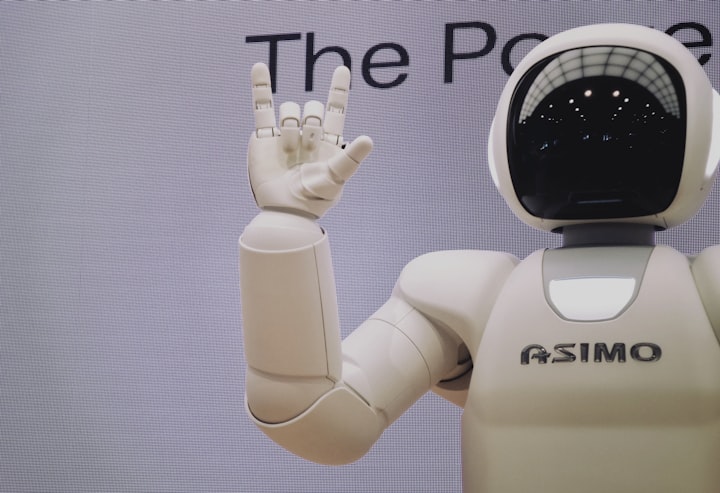The Evolution of AI: From Imagination to Integration
The concept of artificial intelligence, or AI, has been a part of human imagination for centuries. From ancient myths of automatons to the futuristic visions in science fiction, the journey of AI has been a remarkable evolution, culminating in the technology that now shapes our everyday lives. This article traces the fascinating path of AI, from its conceptual origins to its current status as a transformative force in the modern world.

Early Beginnings and Imaginative Roots
AI's roots can be traced back to ancient civilizations where myths and tales described intelligent, human-like machines. Greek mythology introduced the idea of automatons, while ancient Chinese legends spoke of mechanical humanoids. These early visions were more philosophical and mythological than technological, but they laid the imaginative groundwork for what AI could become.
The Birth of Computing and Early AI Concepts
The true birth of AI can be traced to the early 20th century when digital computing machines were first conceived. Mathematician and logician Alan Turing, in the 1930s, proposed the concept of a "universal machine" that could simulate any human performing any task, now known as the Turing machine. This idea set the stage for computer science and AI.
The Dartmouth Workshop in 1956
The term "artificial intelligence" was coined during the Dartmouth Workshop, a seminal event in the history of AI held in 1956. Organized by John McCarthy, Marvin Minsky, Nathaniel Rochester, and Claude Shannon, this workshop laid the groundwork for AI research by defining its goals and objectives. Researchers envisioned creating machines that could simulate human intelligence, including problem-solving, learning, and language understanding.
The AI Winter and Revival
The history of AI includes periods of enthusiasm and subsequent disillusionment, often referred to as "AI winters." The first AI winter occurred in the 1970s when over-optimism about AI capabilities was met with underwhelming results. However, AI experienced a revival in the 1980s and 1990s, with developments in expert systems, natural language processing, and machine learning.
Machine Learning and Neural Networks
Machine learning, a subset of AI, made significant progress in the 21st century. Neural networks, inspired by the structure of the human brain, showed remarkable capabilities in tasks like image and speech recognition. Deep learning, a subfield of machine learning, utilizes neural networks with multiple layers, leading to unprecedented breakthroughs in various applications.
The Big Data Revolution
AI's evolution has been significantly accelerated by the proliferation of big data. The ability to process and analyze massive datasets has enabled AI algorithms to improve their decision-making abilities, power recommendation systems, and enhance predictive analytics across various domains.
AI in the Modern World
Today, AI is integrated into many aspects of daily life. It powers virtual assistants, self-driving cars, recommendation algorithms on streaming platforms, and medical diagnosis tools. In the business world, AI-driven automation streamlines processes, and in healthcare, AI aids in disease diagnosis and drug discovery.
Challenges and Ethical Considerations
While AI has come a long way, it also raises important ethical questions. Concerns about data privacy, algorithmic bias, and the potential for job displacement continue to shape discussions about the future of AI. It is crucial that society continues to address these issues as AI becomes an increasingly integral part of our lives.
As artificial intelligence has progressed through its stages of evolution, it has not been without its share of challenges and ethical dilemmas. The integration of AI into our daily lives has raised significant questions and prompted discussions on various fronts:
Data Privacy and Security: The increasing reliance on AI systems means more data is collected, processed, and stored. This raises concerns about data privacy and security, with questions about who owns the data, how it's used, and how it's protected from breaches and misuse.
Algorithmic Bias: AI systems are only as unbiased as the data they are trained on. Biases inherent in historical data can be perpetuated in AI systems, resulting in biased decision-making processes. Addressing algorithmic bias is a critical challenge to ensure fairness and equity in AI applications.
Job Displacement: The automation potential of AI has led to concerns about job displacement. While AI can augment human capabilities, it can also replace certain routine tasks, potentially leading to shifts in the job market and the need for new skills and training.
Accountability and Transparency: As AI systems become increasingly sophisticated, understanding their decision-making processes can be challenging. The "black box" problem, where AI decisions are difficult to interpret, raises questions of accountability and transparency, particularly in critical applications like autonomous vehicles and healthcare.
Conclusion
The evolution of AI is a testament to human ingenuity and perseverance. From the imaginings of ancient myths to the reality of self-learning machines, AI has made significant strides. As AI continues to evolve, it promises to transform industries, enhance our lives, and redefine what is possible in the realm of technology. Understanding its history allows us to better appreciate the immense potential and responsibilities that come with harnessing artificial intelligence.





Comments
There are no comments for this story
Be the first to respond and start the conversation.